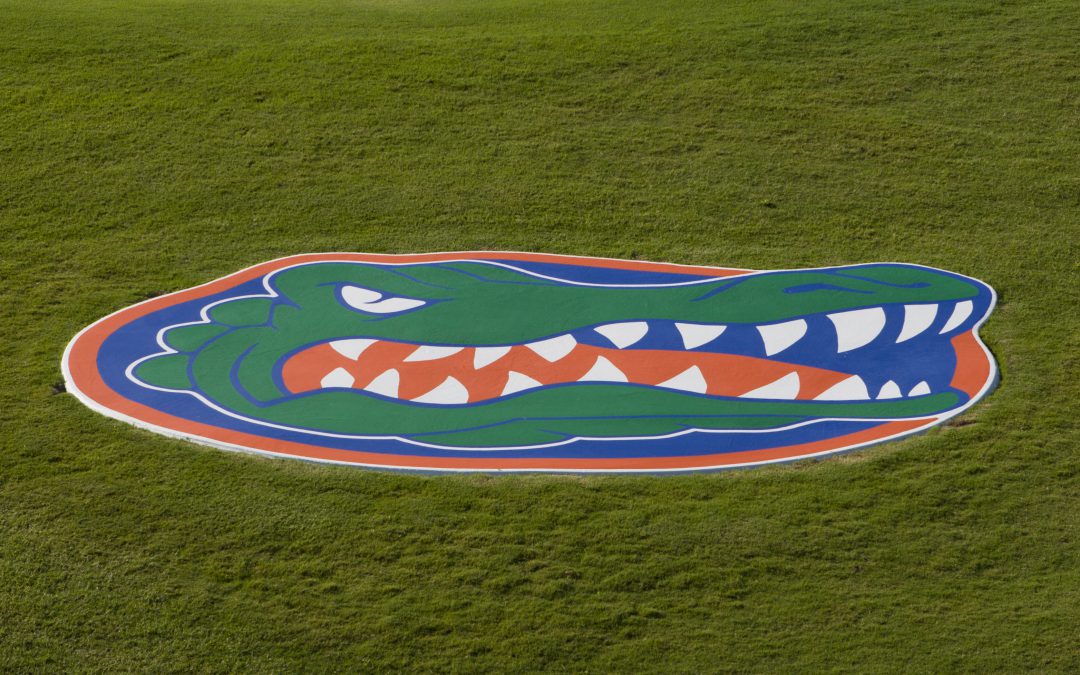
by Julie McConnell | Jun 7, 2021
We’re back! After the COVID-19 hiatus, the Gulf Coast Turfgrass Field Day & Expo returns to the normal third Wednesday in June time slot.
Join us June 16, 2021 for a COVID-19 friendly, in-person field day. Due to COVID-19 protocols, ALL ATTENDEES MUST PREREGISTER before June 15th. There will be NO on-site registration, so get your ticket now!
ATTENDEE REGISTRATION: Choose ONLY one of the four ticket options:
- Field Tour, Scouting Insects, Spill Drills
- Field Tour, Scouting Insects, Natural Pesticides
- Field Tour, Spill Drills, Natural Pesticides
- Field Tour ONLY
MORNING RESEARCH FORUM – Everybody is ready to get back to “normal” and so are the University of Florida scientists who are coming to the Turfgrass Field Day in full force – even a few you’ve likely never met in person! Change abounds and this year’s field day is no different. The line-up this year will have four focus areas and will allow greater time for interaction with the researchers.
Future Urban Landscapes – water quality and quantity concerns are major drivers leading to changes in what future landscapes will look like.
- Agustin Boeri, Graduate Research Assistant
- A.J. Reisinger, UF Soil and Water Scientist
- Mark Lusk, UF Soil and Water Scientist
- Michael Dukes, UF Irrigation Specialist
- Adam Dale, UF Turf Entomologist
- J. Bryan Unruh, UF Turf Specialist
Pest Management – pests continue to create challenges when managing turf.
- Billy Crow, UF Turf Nematologist
- Adam Dale, UF Turf Entomologist
- Phil Harmon, UF Turf Pathologist
- Pawel Petelwicz, UF Turf Weed Scientist
Turfgrass Breeding & Cultivar Development – tremendous effort is underway to bring improved turfgrasses (color, quality, reduced water and nutrition) to the market.
- Kevin Kenworthy, UF Turf Breeder
- J. Bryan Unruh, UF Turf Specialist
- Chase McKeithen, UF Turf Biological Scientist
Cultural Management – research on how to better manage turf.
- Jason Kruse, UF Athletic Turf Specialist
- Marco Schiavon, UF Turf Specialist
- J. Bryan Unruh, UF Turf Specialist
VENDOR EXPO – This year’s vendor expo will be an open air “tail-gate” style event to allow for social distancing and COVID-19 safety protocols. Vendors will be stationed in the grassy areas around the perimeter of the turfgrass research plots. Attendees will have opportunity to visit before, during, and after the research tours.
A limited number of tables and chairs will be available for the vendors. Vendors should plan to bring a pop-up tent if you have one!
Please note: To see all ticketing options please do the following: Upon entering Eventbrite site using link below, click “Tickets” link and then “I want to get tickets” “As an individual” to see all ticketing options.
LUNCH – BBQ Buffet lunches aren’t the most COVID friendly so we are changing up the menu and the venue a bit. Box lunches will be provided out on the research plots. Grab your lunch and find a shade tree, huddle under a vendor tent, or head back to your vehicle for a bit (you may want to turn your A/C on to cool off!).
AFTERNOON PESTICIDE LICENSE CONTINUING EDUCATION – Three sessions will be offered this year. All three classes will be available from ~ 12-1 and 1-2; each class will repeat with different audience so attendees can choose to get 2 different core or 1 category and 1 core CEU.
Scouting for Insects in the Landscape. This session will focus on identification of signs and symptoms of common insect pests in landscape plants. 1 Category CEU O&T, LCLM, LLO, Comm L&O will be requested for this session.
Spill Drills. Do you know what to do in an emergency? This session will cover multiple spill scenarios and what action needs to be taken to prevent injury and environmental harm. 1 Core CEU will be requested for this session.
Natural Pesticides for the Landscape. Many property owners are interested in using “natural” or low-risk pesticides but are they really effective? This session will discuss pesticide products that are labeled as natural and/or organic. 1 Core CEU will be requested for this session.
REGISTER NOW: https://2021gcturfgrassexpo.eventbrite.com

by Matt Lollar | May 3, 2019
Are you looking for more selective herbicide options for annual beds and around shrubs and trees? The Santa Rosa County Extension Office will be hosting guest speaker Dr. Chris Marble from the UF/IFAS Mid-Florida Research & Education Center on Thursday, May 23. Dr. Marble is a Nationally Renowned Weed Scientist who has published numerous research and extension publications.
2 FDACS CEUs available in LCLM, Limited Lawn & Ornamental, Commercial L&O, O&T, Natural Areas, ROW, or Private Ag.
Pre-registration fee is $15, or $20 registration at the door the day of the event (includes lunch and resources). Pre-register online at Eventbrite Ticket or bring cash, check, or money order to the Santa Rosa County Extension Office, 6263 Dogwood Dr., Milton, FL before May 23. For additional questions, please contact Matt Lollar at mlollar@ufl.edu or 850-623-3868.
SCHEDULE
9:30 Registration & Welcome
9:45 Presentation Begins
11:30 Question & Answer w/Dr. Marble
11:45 Evaluation & CEUs
12:00 Lunch & Discussion on Glyphosate Registration
12:30 Adjourn
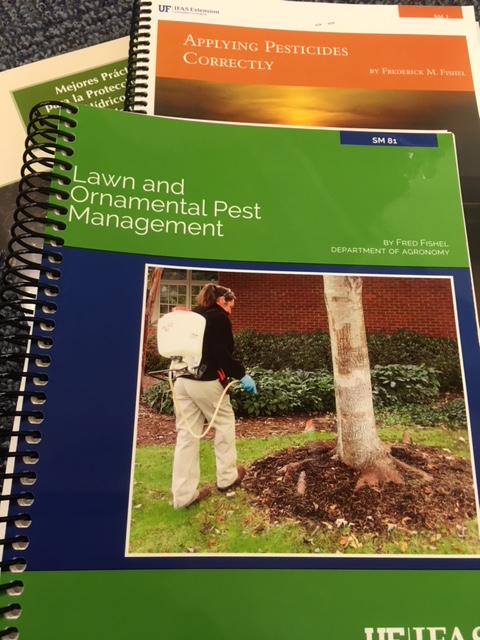
by Julie McConnell | Apr 10, 2018
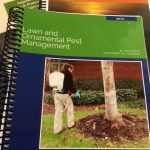 In December of 2017, a new Commercial Lawn & Ornamental Pest Control Operator exam was launched in Florida. This updated exam covers materials found in two new manuals not previously recommended as study guides: “Identification Guide to Common Florida Lawn and Ornamental Weeds,” and “Lawn and Ornamental Pest Management.”. Photographic pest identification including knowledge of life cycle have nearly tripled when compared to the prior exam.
In December of 2017, a new Commercial Lawn & Ornamental Pest Control Operator exam was launched in Florida. This updated exam covers materials found in two new manuals not previously recommended as study guides: “Identification Guide to Common Florida Lawn and Ornamental Weeds,” and “Lawn and Ornamental Pest Management.”. Photographic pest identification including knowledge of life cycle have nearly tripled when compared to the prior exam.
Because this exam is a statewide license, many pests may not be familiar to industry professionals in NW Florida if they are more commonly found in peninsular or South Florida.
The new exam also includes Green Industries Best Management Practices (GI-BMP) topics, Florida Statutes, Administrative Rules, safety concepts from “Applying Pesticides Correctly” and label reading – both fertilizer and pesticide calculations and label interpretation.
The paper exam has been offered twice in Apopka since the launch last year with pass rates below 50% at both sessions.
Panhandle Horticulture Agents in partnership with FDACS (Florida Department of Agriculture and Consumer Services) will be holding a review class May 10-11, 2018, in Panama City. This class is designed to reinforce lawn and ornamental pest control concepts with a focus on newly introduced material for the CPO Commercial Lawn & Ornamental exam, but is not a replacement for independent study.
Exams will not be given in conjunction with this class. Anyone interested in taking the CPO Commercial Lawn & Ornamental exam is still required to meet all mandated qualifications of education and/or experience. Applicants must then apply online https://aesecomm.freshfromflorida.com/ with FDACS to obtain a voucher and schedule the test with a local Extension office.
This class will also provide CEUs for current license holders in the following categories (please check 2018 CEU Commercial L&O Flyer for dates – not all CEUs available both days): Commercial L&O, Limited L&O, LCLM, O&T, Private Ag, Limited Urban Fertilizer. Core CEUs will be available both days.
Registration is customized based on attendees needs as one-day of your choice or two-day. If you plan to take the Comm. L&O Exam, it is strongly encouraged that you attend both days.
For questions about the class, please contact Julie McConnell at juliebmcconnell@ufl.edu
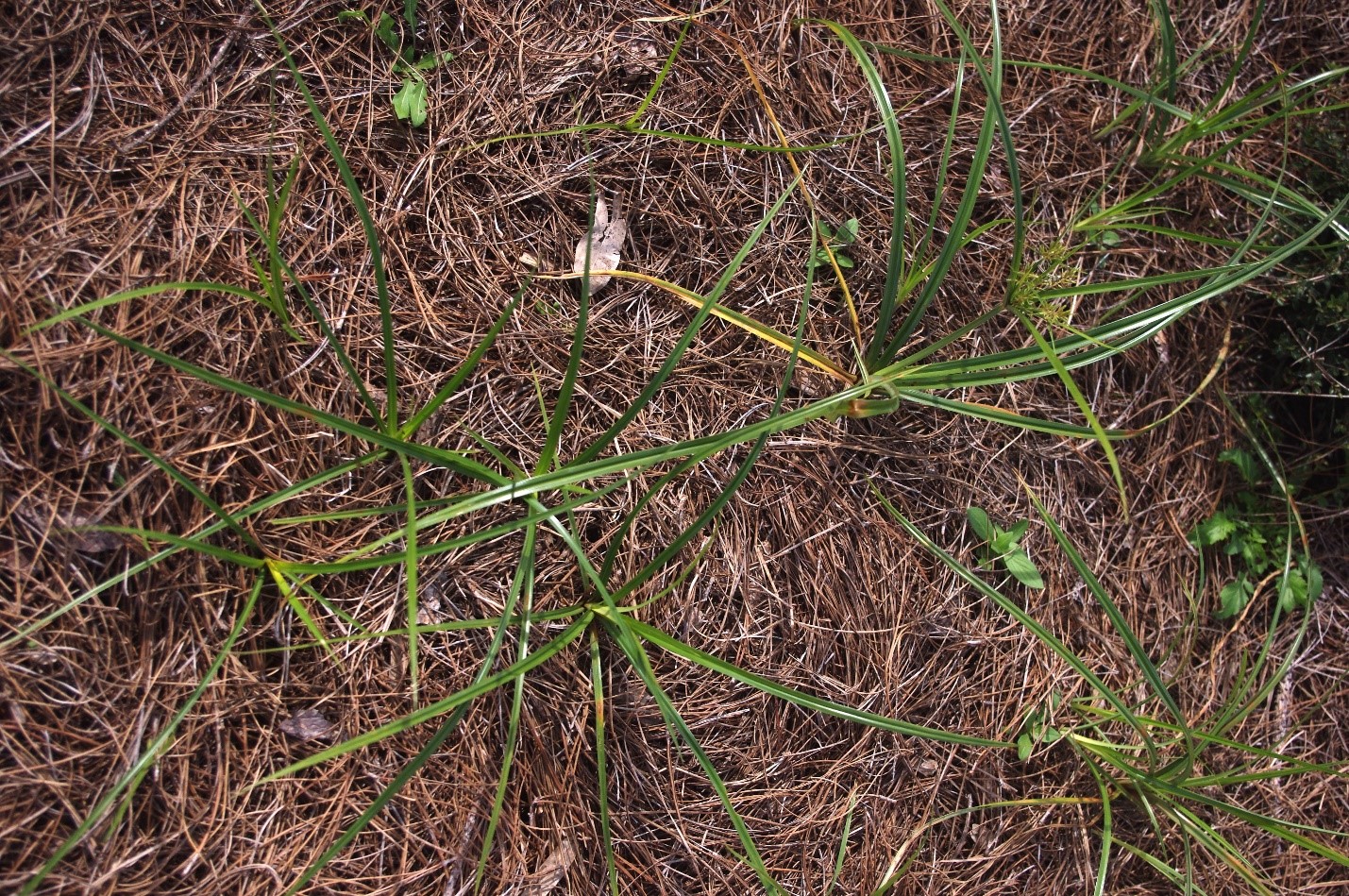
by Blake Thaxton | Jan 22, 2016
While the bulk of most residential weed control programs focus on controlling weeds in turf, weeds can also be very problematic in landscape planting beds. Controlling weeds in landscape beds can be very difficult because unlike turf, planting beds typically contain several different ornamental species that can range from trees to shrubs to herbaceous annuals and perennials.
One of the most common ways to control weeds in landscape planting beds is to make “spot treatments” of glyphosate to control escaped weeds. While this method is effective, it is important to remember that glyphosate is a systemic herbicide, meaning that it can move through plant tissues. Ensure that none of the spray contacts any leaf or stem tissues of desirable plants either through direct contact or through inadvertent drift. If contact is made, the plant tissues that were sprayed will need to be washed or pruned off as soon as possible to avoid further damage. Be especially mindful when applying near species that are known to sucker near the ground such as crape myrtles. Glyphosate can also cause damage when applied to young tree bark or to some trees with very thin bark. Herbicides that have only contact action can also cause damage to ornamentals but these herbicides will not move throughout the plant and the injury will remain localized. Contact herbicides are not as effective on perennial weeds such as Florida betony (Stachys floridana) or nutsedge species (Cyperus spp.).
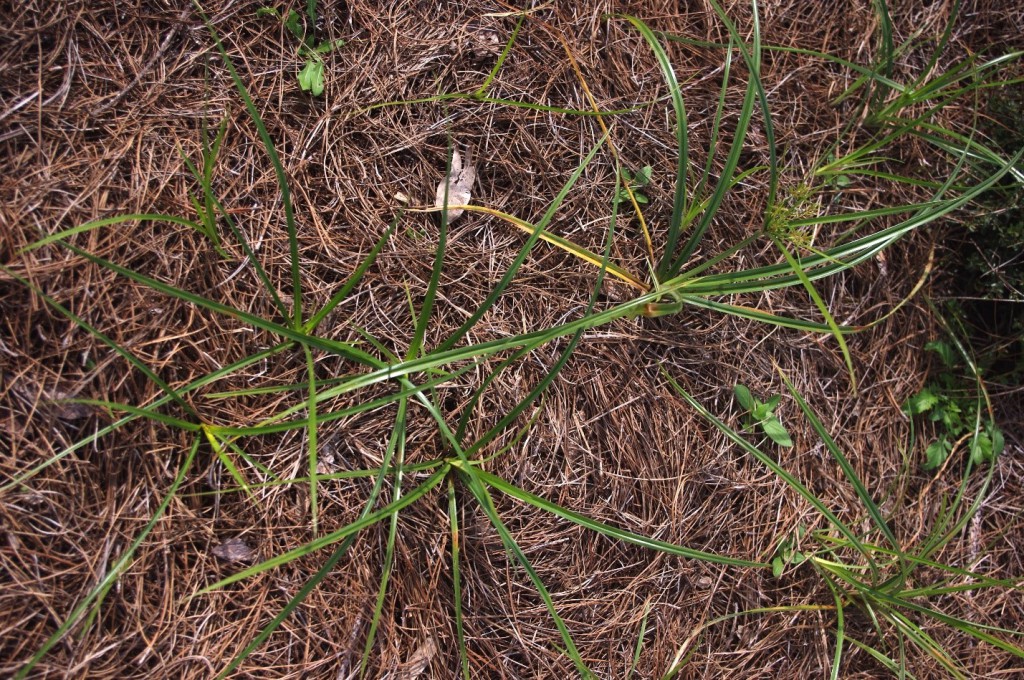
Nutsedge can be very difficult to control. Photo Credit: Chris Marble, UF/IFAS
Mulching is one of the safest and most effective methods of weed control in landscape beds. Coarse textured mulches (such as pine bark nuggets) are typically preferred over smaller textured mulch because they provide a less favorable environment for weed seed germination. Mulch should be applied at a depth of 2 to 3 inches for best results. In addition to controlling weeds, mulch can also help to add organic matter to the soil and help to conserve water.
In addition to mulching and some postemergence herbicides, there are many preemergence herbicides that can be used “over-the-top” of hundreds of landscape plants. The same as with all pesticides, be sure to carefully read product labels before making a peemergence herbicide application to a landscape planting bed and make sure that your equipment is calibrated properly. Do not apply granular herbicides if plant foliage is wet and do not apply when the landscape plants have tender new flushes of growth. It is important to irrigate as soon as possible after applying preemergence herbicides to wash the herbicide off of plant foliage and to activate the herbicide. More information on specific herbicides that can be used in these areas and other precautions can be found at http://edis.ifas.ufl.edu/ep523.
As a final note, never apply “weed-n-feed” or other herbicides that are labeled only for use in turf areas to landscape planting beds. In most cases, these products can cause severe damage or death to landscape plants through drift and root uptake. Always be sure that the herbicide you are using is labeled for use in landscape planting beds and labeled for use on the ornamental species you have.





